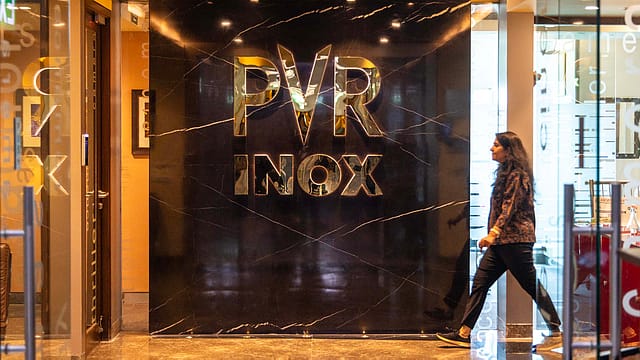Karnataka’s proposed ₹200 price cap on movie tickets to hit PVR Inox
ADVERTISEMENT

The Karnataka government’s draft notification, proposing to cap movie ticket prices for all languages at ₹200 (tax inclusive) across theatres and multiplexes, is expected to impact the revenues and profitability of India’s largest film exhibitor, PVR Inox Ltd .
Karnataka accounts for 12.3% of PVR Inox’s total screen portfolio, with 215 screens out of 1,743 as of May 2025, said Karan Taurani, senior vice president at Elara Securities.
The southern state contributes around 8% to the Hindi box office and around 10% to overall collections, with an average ticket price of ₹260. The proposed cap at ₹200 implies a 30% reduction in state-level average ticket price, Taurani noted.
Given Karnataka’s 12.3% screen share, the price cap is estimated to lead to a 3.7% decline in consolidated average ticket price, potentially impacting headline revenues and EBITDA by around 2.2% and 1.8% respectively across FY26-28E, Taurani noted.
This proposed price cap on movie tickets comes eight years after a similar measure was implemented earlier by the Karnataka government in April 2017, when it introduced a cap of ₹200 on movie ticket prices across all theatres, including multiplexes.
However, the film exhibition industry challenged the decision in court and, in 2021, secured a favourable verdict from the High Court, which allowed exceptional pricing for special and luxury formats.
“Premium formats such as IMAX and 4DX in Bengaluru typically command weekend ticket prices in the ₹600–1,000 range; a uniform price cap could extend the payback period for these capex-intensive formats,” said Taurani.
If the move is implemented, the price cap could structurally impair franchise-led expansion of PVR-Inox by hurting franchise partner sentiments and return on investment (ROI) concerns, he noted.
Since distributor revenue is linked to net ticket collections, a 30% price cut would directly impact exhibitor earnings, especially in premium malls where high rentals and reduced ticket pricing may raise the occupancy breakeven threshold above the current 18–20% per show, Taurani said. As a result, exhibitors may need to increasingly rely on food and beverage (F&B) upselling to support unit-level profitability.
The draft notification issued by the Karnataka government is currently open for public feedback and objections for a 15-day period, following which the government is required to review all submissions before releasing a final gazette notification.
“Exhibitors may consider legal recourse against the potential implementation. Past precedents suggest a favourable outcome is possible, as investments in premium formats and differentiated consumer experiences could be used to justify higher ticket pricing in court,” said Taurani.
While the government's intent is to make cinema more affordable and promote local language films, historical trends indicate that content quality plays a more critical role in driving footfalls than ticket pricing, Taurani explained.